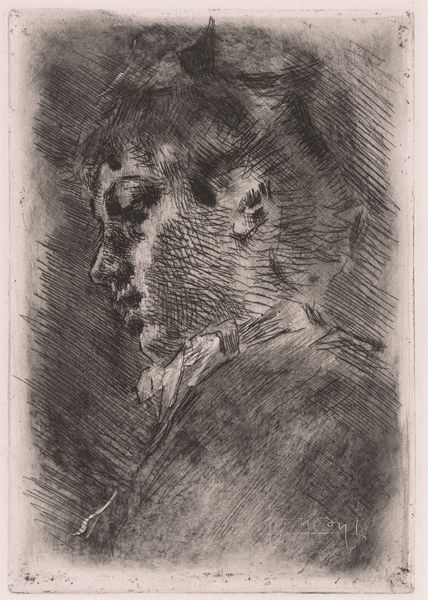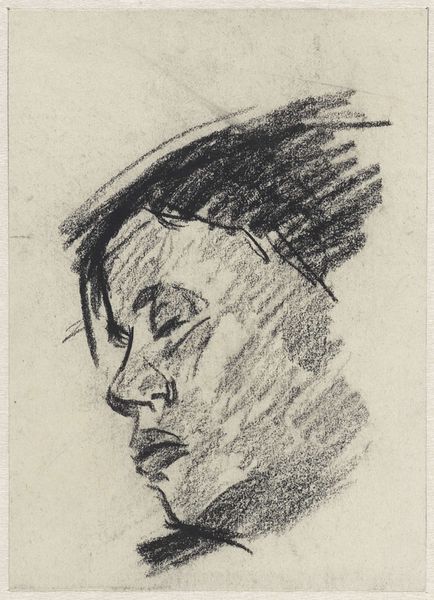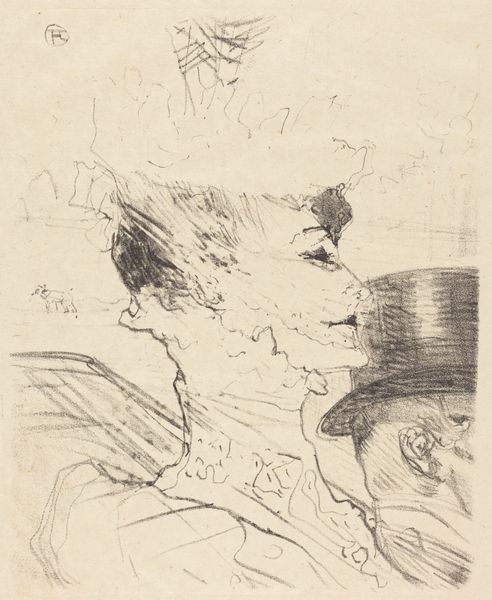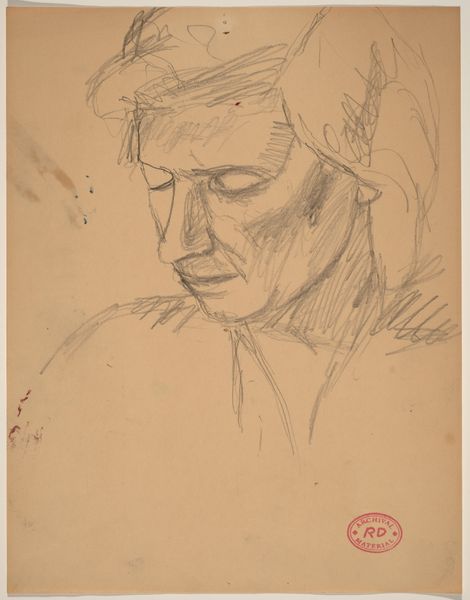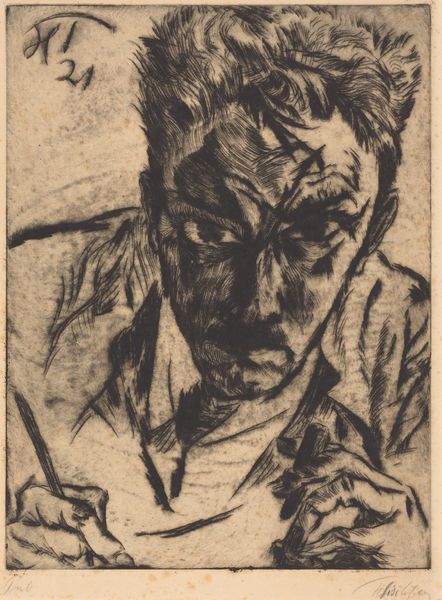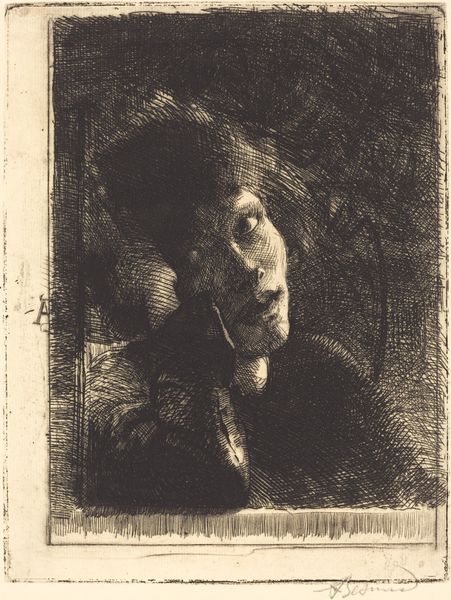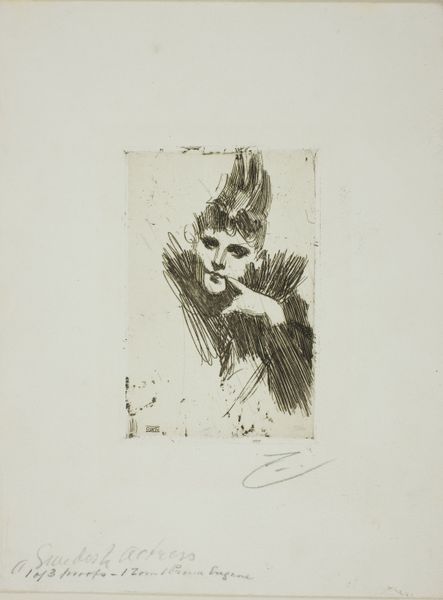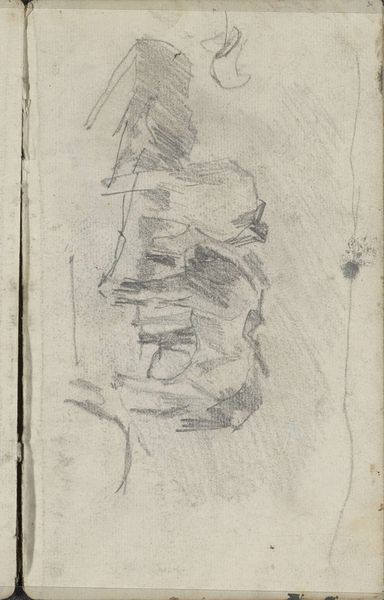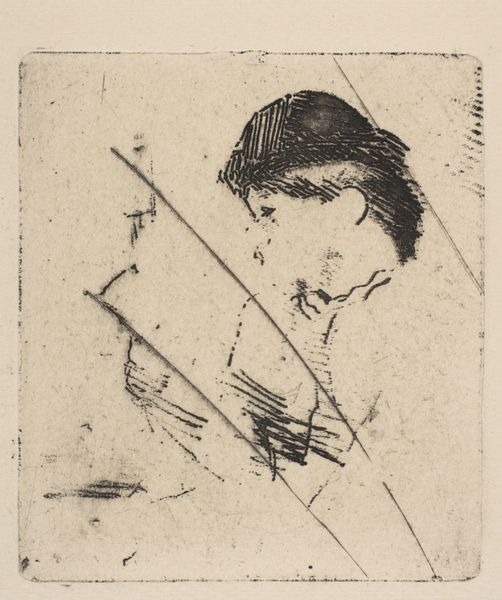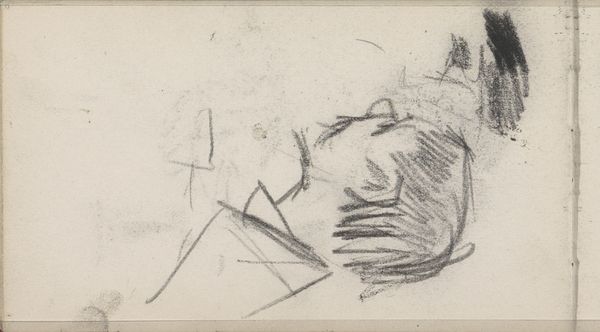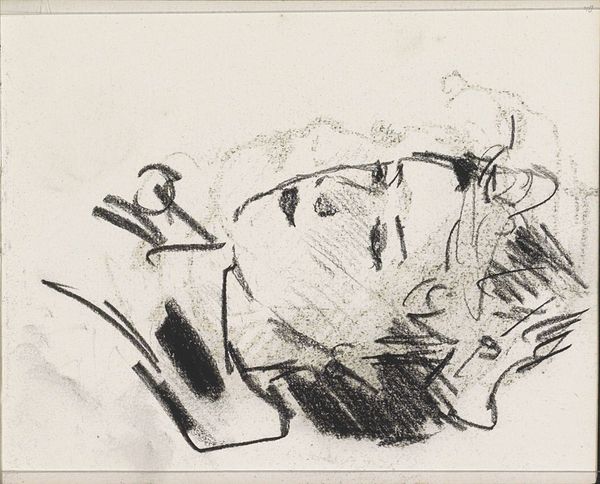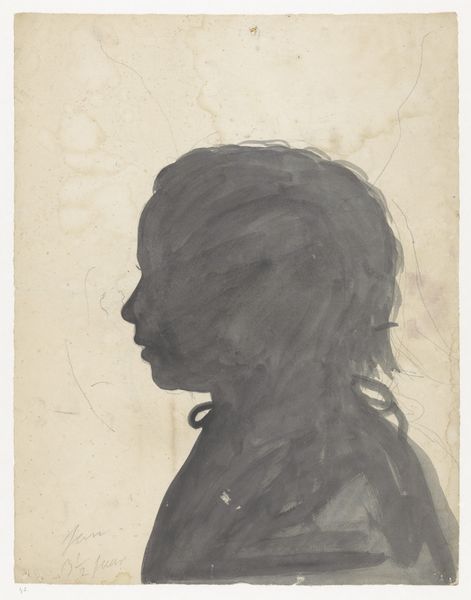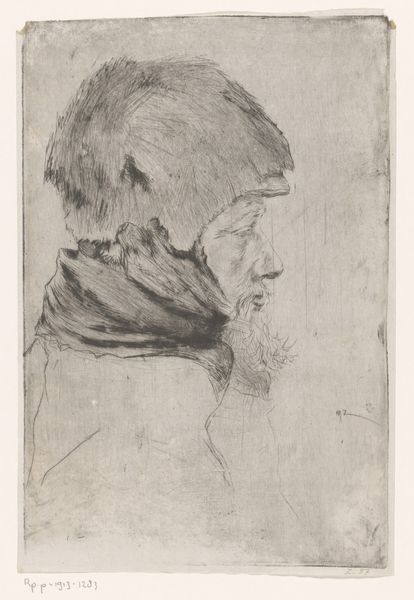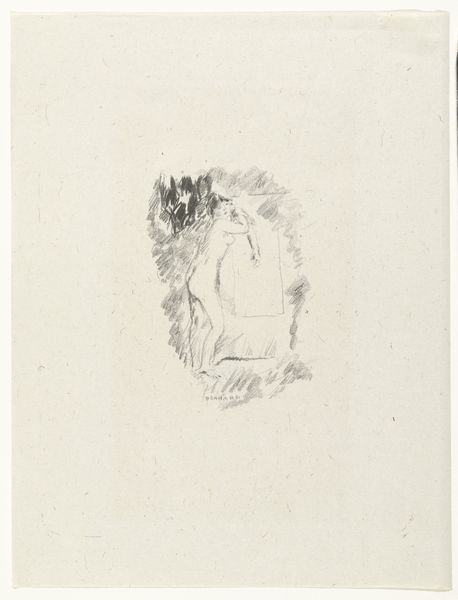
drawing, pencil
#
portrait
#
drawing
#
light pencil work
#
pen sketch
#
pencil sketch
#
personal sketchbook
#
pencil drawing
#
ink drawing experimentation
#
romanticism
#
pen-ink sketch
#
pencil
#
sketchbook drawing
#
portrait drawing
#
pencil work
Dimensions: height 280 mm, width 255 mm
Copyright: Rijks Museum: Open Domain
Curator: This drawing, housed here at the Rijksmuseum, is entitled "Portret van een man," or "Portrait of a Man," created in 1820 by David-Pierre Giottino Humbert de Superville. Editor: It strikes me as very raw, almost brutal. The hatching of the pencil work emphasizes the subject’s harsh features and wild hair, suggesting an untamed spirit. Curator: Interesting. The rapid, almost frenetic application of the pencil clearly reveals the artist’s hand. You can almost imagine Superville in the act of drawing, quickly capturing a fleeting image or idea. The quality of the pencil, its grade, and the paper’s texture would significantly affect the final product. This immediacy emphasizes the artist’s process. Editor: For me, it evokes a sense of the romantic, but through a kind of rebellion. Look at how Superville subverts traditional portraiture. There's a rejection of the idealized figure typical of earlier eras, in favor of a grittier, more immediate representation of human character. The sitter looks almost troubled or pensive. Curator: I wonder about Superville's choice of medium. Pencil allows for easy correction and alteration. Was he experimenting, trying to discover something through the act of drawing itself? The layering of marks might also hint at revisions and changing perceptions. It seems likely this was a preparatory study, a material step toward a larger work perhaps never realized, so its real value to us lies in observing the method used to record these likenesses at the time. Editor: Yes, but what kind of likeness? It’s a compelling depiction of masculinity outside the bounds of established power or nobility. Consider the early 19th century and Romanticism’s focus on the individual’s emotional life. This image suggests a world of inner turmoil or perhaps even revolutionary thoughts simmering beneath the surface. The spiky hair is itself a symbol of defiance, turning away from tradition, facing forward into an uncertain future. Curator: Fascinating. For me, understanding the societal position of pencils at that time – as tools available to a burgeoning professional class rather than solely the elite – highlights its democratic potential in art making. It suggests broader shifts in patronage and artistic training. Editor: In the end, both elements fuse; the deliberate marks reveal the cultural shifts taking place. It shows that materials can, themselves, hold potent symbolism, so it's both the meaning behind the image and the act of creation together which offer meaning in such an immediate, effective manner. Curator: Indeed, analyzing both process and symbol allows for a deeper connection with Superville and his era.
Comments
No comments
Be the first to comment and join the conversation on the ultimate creative platform.
